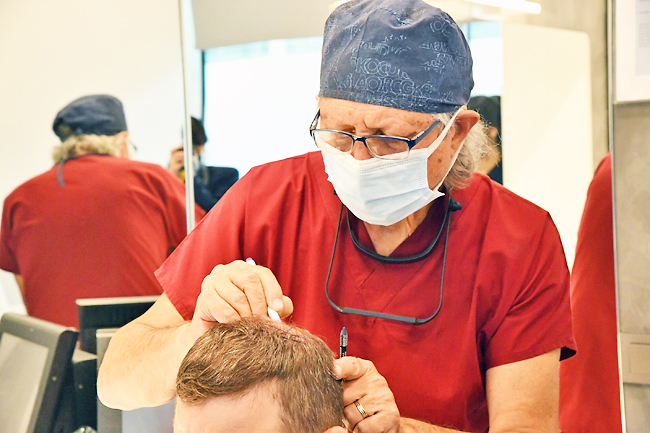ANKARA (XINHUA) – Turkey’s medical tourism is growing fast, as the shrinking Turkish lira has brought down the cost of treatments while cosmetic surgeries are giving the sector a competitive niche in the ever-evolving global market, professionals have said.
Alper Capanoglu runs two clinics in Istanbul, Turkey’s largest city and commercial hub, and in the northwestern city of Bursa, serving some 3,000 patients annually, mostly foreigners from European, the Middle Eastern region, and Northern Africa countries.
“The decline of the lira made our services more affordable, and Turkey has a very good medical infrastructure with skilled doctors,” Capanoglu told Xinhua.
Turkey is seeking to boost revenues from tourism to help finance a current account deficit that has widened alarmingly this year due to interest rate cuts and a surge in imports. The rate cuts made despite inflation have also pressured the lira to lose much of its value since 2021.
According to official figures, the first quarter of this year has seen some 285,000 medical tourists arriving in Turkey. It is estimated that by the end of this year, income from the branch will top USD3 billion.

Among cosmetic surgeries, hair implantation brought in some 550,000 foreign customers in the first half of 2022, compared to 750,000 in the entire of 2019, leading the sector to post-pandemic recovery, said head of the Turkish Health Tourism Association Servet Terziler.
In Turkey, hair loss treatments cost between EUR3,000 and EUR7,000, whereas “in Europe, doctors do it for about EUR8,000 to EUR10,000”, Terziler added.
About a decade ago, Ankara recognised the importance of medical tourism and encouraged the establishment of private clinics and hospitals as well as private treatment wings in state-owned hospitals.
These facilities thus receive tax breaks and certain exemptions from customs duties. Some of them also operate as travel agencies that offer streamlined medical tourism packages including flights, local transport, and top-notch accommodations, even a holiday in Turkey many resorts.
In 2002, the share of tourists’ health expenditures in national tourism revenues was only one per cent. In 2020, it’s 4.5 per cent.
But medical procedures don’t consist merely of facelifts and hair makeovers, people are also coming to have life-saving surgical interventions, according to business owners.
“The cost of treatments in serious cases, such as cancer, organ transplant and other life-threatening illnesses here is only a fraction of the price in some European countries,” said chairman of a long-standing health service firm in Istanbul Aziz Ciga.
“Medical tourism, including wellness, thermal therapies and geriatric care, amounts to an annual spending of USD1.2 trillion globally, according to surveys,” he said. “Our country has easily the potential of cashing on 10 per cent of this global pie.”







